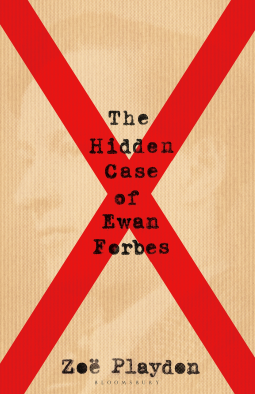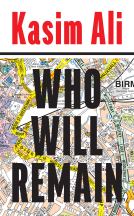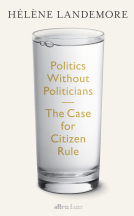
The Hidden Case of Ewan Forbes
by Zoe Playdon
This title was previously available on NetGalley and is now archived.
Send NetGalley books directly to your Kindle or Kindle app
1
To read on a Kindle or Kindle app, please add kindle@netgalley.com as an approved email address to receive files in your Amazon account. Click here for step-by-step instructions.
2
Also find your Kindle email address within your Amazon account, and enter it here.
Pub Date 11 Nov 2021 | Archive Date 11 Nov 2021
Bloomsbury Publishing Plc (UK & ANZ) | Bloomsbury Publishing
Talking about this book? Use #TheHiddenCaseofEwanForbes #NetGalley. More hashtag tips!
Description
'Magnificently researched and told' Lord Michael Cashman CBE
'A landmark work' Baroness Helena Kennedy QC
'Gripping and important’ Michael Bronski, author of A Queer History of the United States
The never-before-told story of Ewan Forbes and the landmark case that rocked British society and transformed transgender experience to this day
Ewan Forbes was born Elizabeth Forbes to a wealthy landowning family in 1912. It quickly became clear that the gender applied to him at birth was not correct, and from the age of six he began to see specialists in Europe for help. With the financial means of procuring synthetic hormones, Ewan was able to live as a boy, and then as man, and was even able to correct the gender on his birth certificate in order to marry.
Then, in 1965, his older brother died and Ewan was set to inherit the family baronetcy. After his cousin contested the inheritance on the grounds that it could only be inherited by a male heir, Ewan was forced to defend his gender in an extraordinary court case, testing the legal system of the time to the limits of its understanding.
In The Hidden Case of Ewan Forbes, Zoë Playdon draws on the fields of law, medicine, psychology and biology to reveal a remarkable hidden history, uncovering for the first time records that were considered so threatening that they had been removed from view for decades.
Available Editions
| EDITION | Hardcover |
| ISBN | 9781526619136 |
| PRICE | £20.00 (GBP) |
Average rating from 31 members
Featured Reviews
This book is weird. It starts with an utterly improbable - but completely true - premise; what if there was a secret court case which set back the cause of trans rights for half a century?
And, yet, that's where we are. Complex and secretive bureaucracies fighting against open publication. The open data nerd in me was thrilled and appalled.
The book is a meticulous exploration of the trans* experience during the last century. As well as a detailed journey through Ewan's life, it expertly explains the context of what he - and others - were going through.
It is thoroughly sympathetic to Ewan's plight. Nevertheless, I found there to be something a bit ghoulish about an unauthorised biography of someone who wanted aspects of their life kept private. There's a fair bit of "We don't know how Ewan felt about this, but..." which is a problem with every unauthorised biography. But it never puts words in his mouth - and always contextualises the likelihood of his possible response.
The story, ironically, is one of intense privilege. Ewan and his family were literal nobility. With money and connections, he was able to access a level of healthcare which is unthinkable even to this day. Dining with royalty and being seen by the Queen's surgeon buys access to a level of "respectability" that is out of reach for the majority of people.
Ewan's story dominates the book - but not to the exclusion of others. It pulls in the stories and court cases of contemporary people - mostly from the UK, with some occasional forays into the EU, US, and Australia. It's brilliant to see a book so passionately explore the UK's attitude to trans rights. Too often these books are only viewed through a US lens. This is clearly focussed on the UK - Scotland in particular - and the implications it has for our country.
At its heart is the surprising revelation that there's a constitutional crisis born out of the inherent hetrosexism of primogeniture. The make-believe idea that artificially constructed titles must be passed down the male line. If not, our country and culture will collapse. Without a workable definition of male and female, and the acknowledgement that recording of natal sex isn't immutable, the whole edifice quickly crumbles.
The end of the book left me upset. How can we still be fighting these battles? Why are waiting times so long? What drives the gutter press to such depths of depravity?
It is an excellent biography - not just of a man, but of a country and of a culture.
An important and timely book.
Thanks to NetGalley for the review copy. The book is released later this year .
This book is about the basic civil liberties for transgender people that evaporated in the late 1960’s when the law requires compliance with the gender stated on birth certificates. This injustice is linked to the suppressed and hidden case of Sir Ewan Forbes which combined with the divorce case of transgender April Ashley (Corbett versus Corbett) has a profound effect on transgender rights for fifty years. The case is hidden because of the law of primogeniture which means that only males can inherit lands, titles etc. and is suppressed to ensure this law remains intact. It’s is therefore not just important to the transgender community but to everyone. So, who is Sir Ewan Forbes? He was born in 1912 and registered at birth as female and named Elisabeth, however, he always identified as male and as far as he was concerned he was Ewan. He had the support of his mother and elder brother in particular. He was probably intersex and not transgender but that’s not the main issue. In 1952 his birth certificate was changed to male, he married and it all came to a head in 1965 when his elder brother William died and bequeathed the not inconsiderable Scottish estates and all that entailed to his cousin John. Ewan challenged it in court to great personal cost and won. This judgement was then suppressed and it disappeared from view and it’s only with persistence that it came to light. The whole case is fascinating, Ewan and his family are extremely interesting and I found the whole family story engrossing and the best parts of the book. The author does a very good job in explaining how significant the case is to the transgender community.
Ewan’s story is firmly set in its historical context including looking at countries where there is persecution such as in Nazi Germany and also includes ‘treatments’ to cure what is seen as ‘abhorrent’, changes in the law are explained as are medical ethics. Particularly interesting is how the LGBTQIA community has been represented in film and literature and how views began to change. Other cases are included which is also a very interesting part of the book especially Lili Elbe (The Danish Girl portrayed by Eddie Redmayne) and April Ashley. It documents the fight for legal recognition, activism and pockets of resistance.
Overall, this is a book I’m very glad I read. I knew nothing about this case as most people wouldn’t but it’s suppression is of vital importance because of the subsequent injustice. This is an important book not only for the LGBTQIA community, anyone interested in the law but also anyone who just wants to understand the situation better. It’s extremely good on Ewan’s case, on cultural attitudes and is very revealing in places. At times the depth can be a bit exhausting but I fully recognise that’s what gives the book it’s power and strength.
With thanks to NetGalley and especially to Bloomsbury Publishing PLC for the arc in return for an honest review.
Readers who liked this book also liked:
Philip Hoare
Arts & Photography, Biographies & Memoirs, Nonfiction (Adult)


















